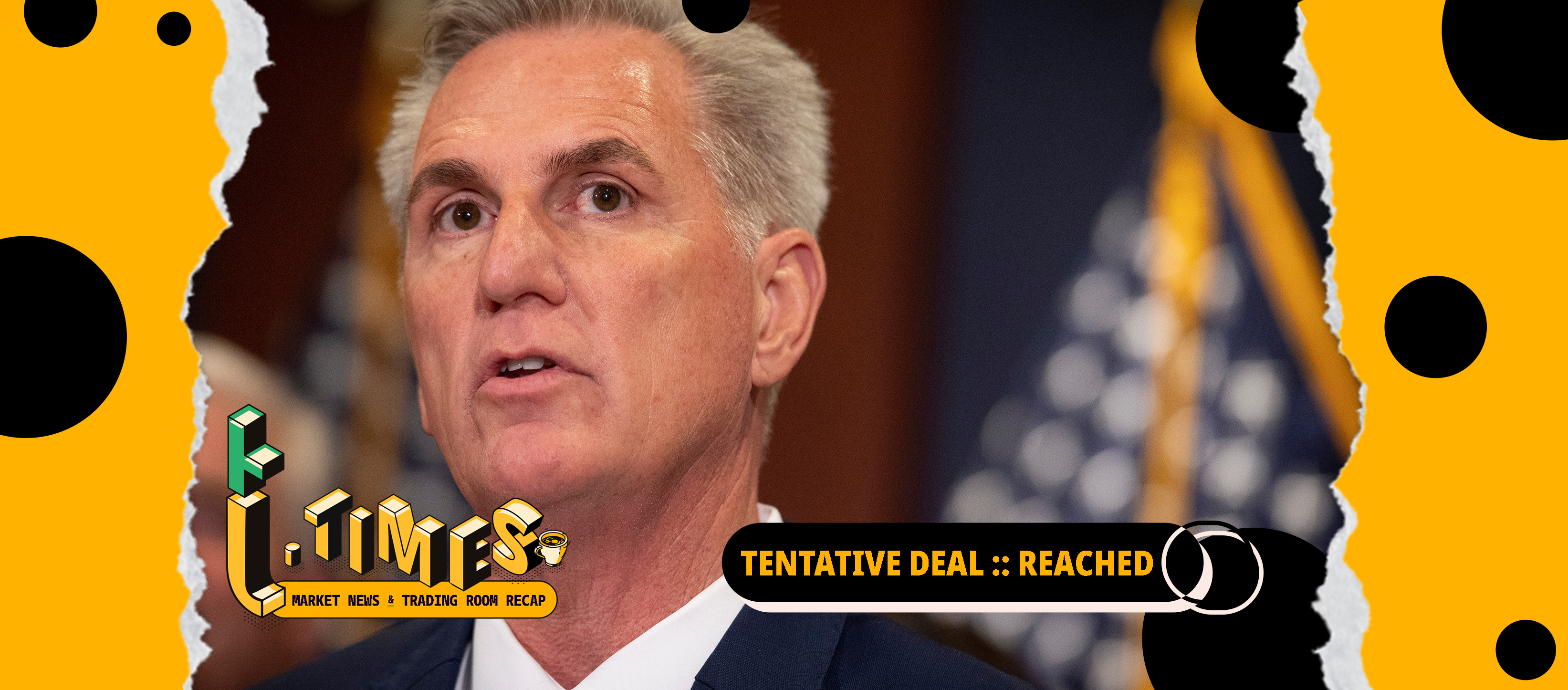
President Biden and Republican Leader McCarthy Forge Tentative Deal to Suspend U.S. Debt Ceiling.
In a significant breakthrough, U.S. President Joe Biden and top congressional Republican Kevin McCarthy have reached a preliminary agreement to suspend the federal government’s $31.4 trillion debt ceiling, putting an end to a protracted stalemate that has spanned several months.
The terms of the deal entail the suspension of the debt limit until January 2025. Additionally, it includes spending caps for the 2024 and 2025 budgets, the clawing back of unused COVID funds, streamlining the permitting process for selected energy projects, and the implementation of additional work requirements for food aid programs assisting impoverished Americans.
After months of back-and-forth exchanges, the tentative agreement materialized through a series of swift phone calls. Biden and McCarthy engaged in a 90-minute conversation earlier on Saturday evening to discuss the deal, followed by McCarthy briefing his fellow House members later in the evening. Subsequently, the White House and the House leader held further discussions.
McCarthy informed reporters on Capitol Hill that there is still more work to be done to finalize the bill. He expects to conclude the drafting process on Sunday, then engage in further dialogue with President Biden before holding a vote on the deal on Wednesday.
Biden and McCarthy now face the delicate task of finding a middle ground that can garner support in the House, where Republicans hold a 222-213 majority, and the Senate, where Democrats hold a narrow 51-49 majority. Bipartisan backing is crucial before the president can sign the deal into law.
McCarthy emphasized that the deal incorporates significant spending reductions, consequential reforms aimed at lifting individuals out of poverty and into the workforce, and measures to curtail government overreach and that the deal does not introduce new taxes or government programs.
The Treasury Department warned on Friday that failure to address the debt ceiling issue by June 5 would lead to a financial shortfall.
House Republicans, who control the House of Representatives, have advocated for substantial spending cuts and additional conditions. As early details of the deal emerged, they expressed sharp criticism.
The issue of taxes versus spending cuts has been a point of contention between the Republicans and Democrats. Republicans argue for spending cuts to curb the growth of the U.S. debt, which currently amounts to approximately the annual output of the country’s economy. Conversely, Biden and the Democrats advocate for increased taxes on the wealthy and corporations as a means to reduce the debt while allocating more resources to programs such as free community college.
The prolonged standoff over raising the debt ceiling has rattled financial markets, weighing on stocks and leading the United States to face record-high interest rates during bond sales.
Economists warn that a default would exact a far greater toll, potentially plunging the nation into recession, unsettling the global economy, and triggering a surge in unemployment.
Biden’s refusal to negotiate with McCarthy on future spending cuts, demanding a “clean” debt-ceiling increase devoid of additional conditions and a counter 2024 budget proposal, has extended the duration of the deadlock.
The effort to raise the debt ceiling remains an ongoing task. McCarthy has committed to providing House members with a 72-hour window to review the legislation before proceeding to a floor vote. This will test whether enough moderate members can rally support for the compromises within the bill, overcoming opposition from both hard-right Republicans and progressive Democrats, ultimately securing a majority vote.
Subsequently, the bill will need to pass the Senate, where at least nine Republican votes will be necessary. Throughout the process, each chamber holds various opportunities to potentially impede progress.
Source: Investing.com
